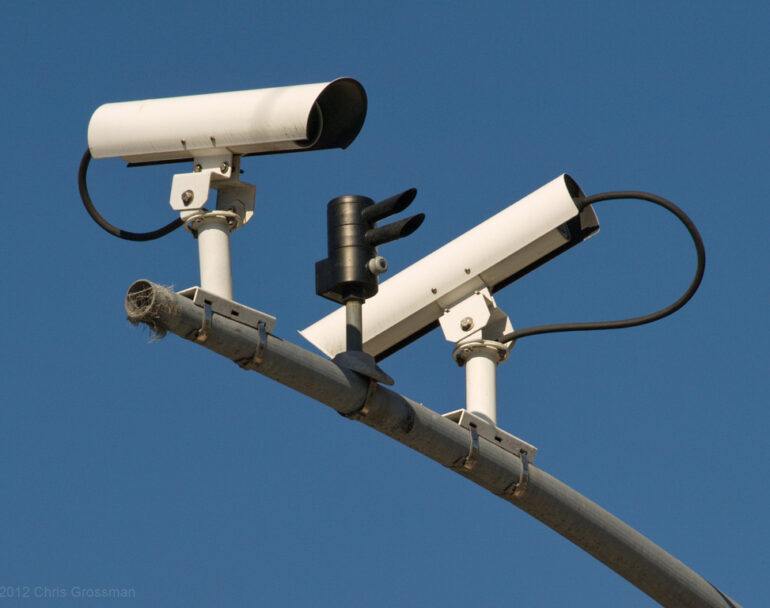
Automated License Plate Recognition (ALPR)
A Civil Liberties Briefing
ALPR technology is used by law enforcement agencies across the state. It consists of high-speed cameras mounted on vehicles or stationary objects (such as telephone poles or overpasses.) The cameras snap pictures of every license plate that passes – capturing thousands of cars’ information per minute. A computer checks the information in these pictures against police department databases. If a scanned plate matches information in the database, an officer is alerted. ALPR can be a useful tool for police officers, helping them recover stolen cars and arrest people with outstanding warrants. However, narrow guidelines must be implemented to protect Ohioans’ privacy.
Privacy Risks
More invasive technology
ALPR technology exponentially increases the amount of license plate data being gathered and the speed at which it can be collected. As this technology becomes more widely available, we may quickly reach a point where there are so many cameras in use that their ability to follow a car’s movement rivals the use of a GPS tracker
Increased surveillance
Location data can reveal extremely sensitive information about who we are and what we do. Since ALPR take pictures of every license plate that passes, regardless of suspected wrongdoing, they can be used to track people’s movement for months or years. This pervasive surveillance undermines our ability to move through the community without being watched by the police
Misuse of data
Local and federal law enforcement agencies routinely store all ALPR data –regardless of suspected wrongdoing – and share this information with other agencies. Without limits on data retention and sharing, we risk the creation of databases that facilitate the pervasive, permanent monitoring of innocent Ohioans
Threats to free speech
Surveillance curtails individual liberty and freedom by placing Americans under constant scrutiny. Innocent people may fear punishment if they exercise their First Amendment rights on issues where they do not agree with the government
Need for Guidelines
Despite the extensive use of ALPR technology by law enforcement, only five States (Maine1, New Hampshire2, Arkansas3, Vermont4, and Utah5) have laws governing their use. Additionally, a recent report issued by the ACLU found a patchwork of law enforcement polices regarding ALPR technology. Some agencies, such as the Ohio Highway Patrol, tout a policy with strict retention guidelines; others have more lax policies or none at all.6
Ohio Legislation
The ACLU of Ohio would like to see legislation passed in Ohio, which:
- Specifies that ALPR be used only to investigate hits or in other circumstances in which law enforcement agents reasonably believe that plate data is relevant to an ongoing criminal investigation;
- Limits the amount of time that captured plate data can be retained;
- Restricts access to ALPR databases and requires agencies log access to the database; and
- Requires annual reporting of ALPR use and practices
End Notes
- Rev. Stat. tit. 29-A, § 2117-A (2010), http://www.mainelegislature.org/legis/statutes/29-a/title29-Axec2117-A.html
- H. Rev.Stat.Ann. § 261:75-b (2007), http://www.gencourt.state.nh.us/legislation/2007/sb0041.html
- B. 1996, 89th Gen. Assemb., Reg. Sess. (Ark. 2013), http://www.arkleg.state.ar.us/assembly/2013/2013R/Acts/Act1491.pdf
- 1. 23 V.S.A. § 1607, http://www.leg.state.vt.us/DOCS/2014/ACTS/ACT069.pdf
- 2013 Utah Laws Ch. 447 (S.B. 196), http://le.utah.gov/~2013/bills/sbillenr/SB0196.htm
American Civil Liberties Union. (2013). You are being tracked: How license plate readers are being used to record Americans’ movements. Retrieved from https://www.aclu.org/technology-and-liberty/you-are-being-tracked-how-license-plate-readers-are-being-used-record
Email: contact@acluohio.org Website: www.acluohio.org